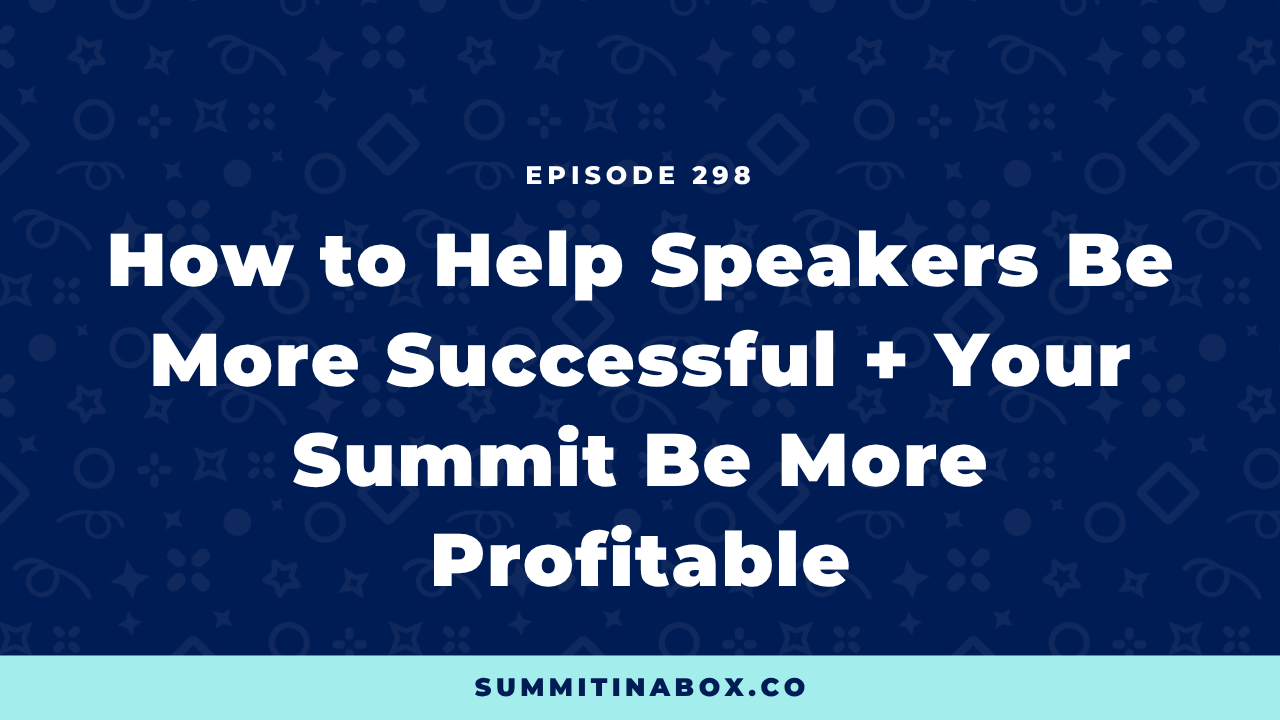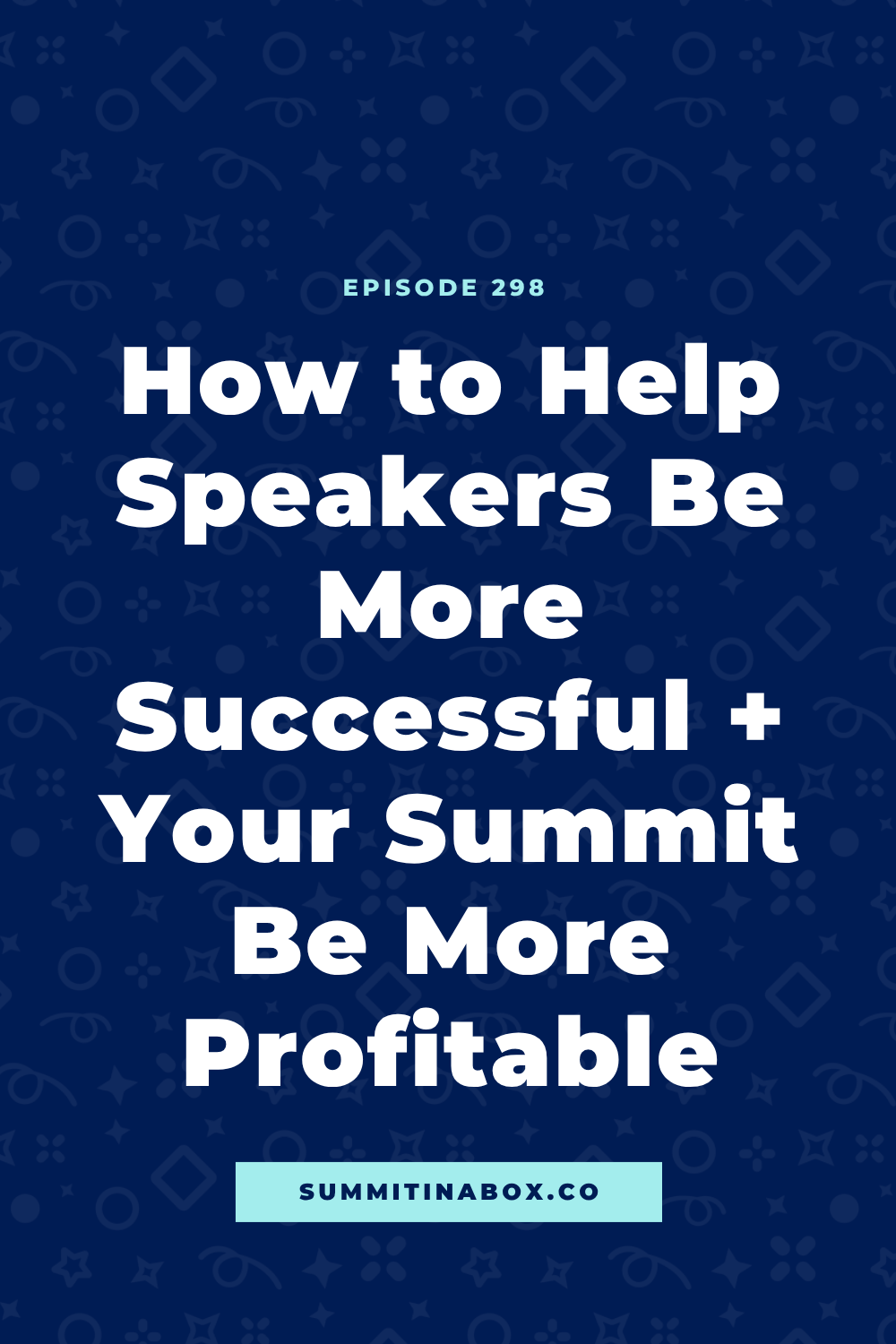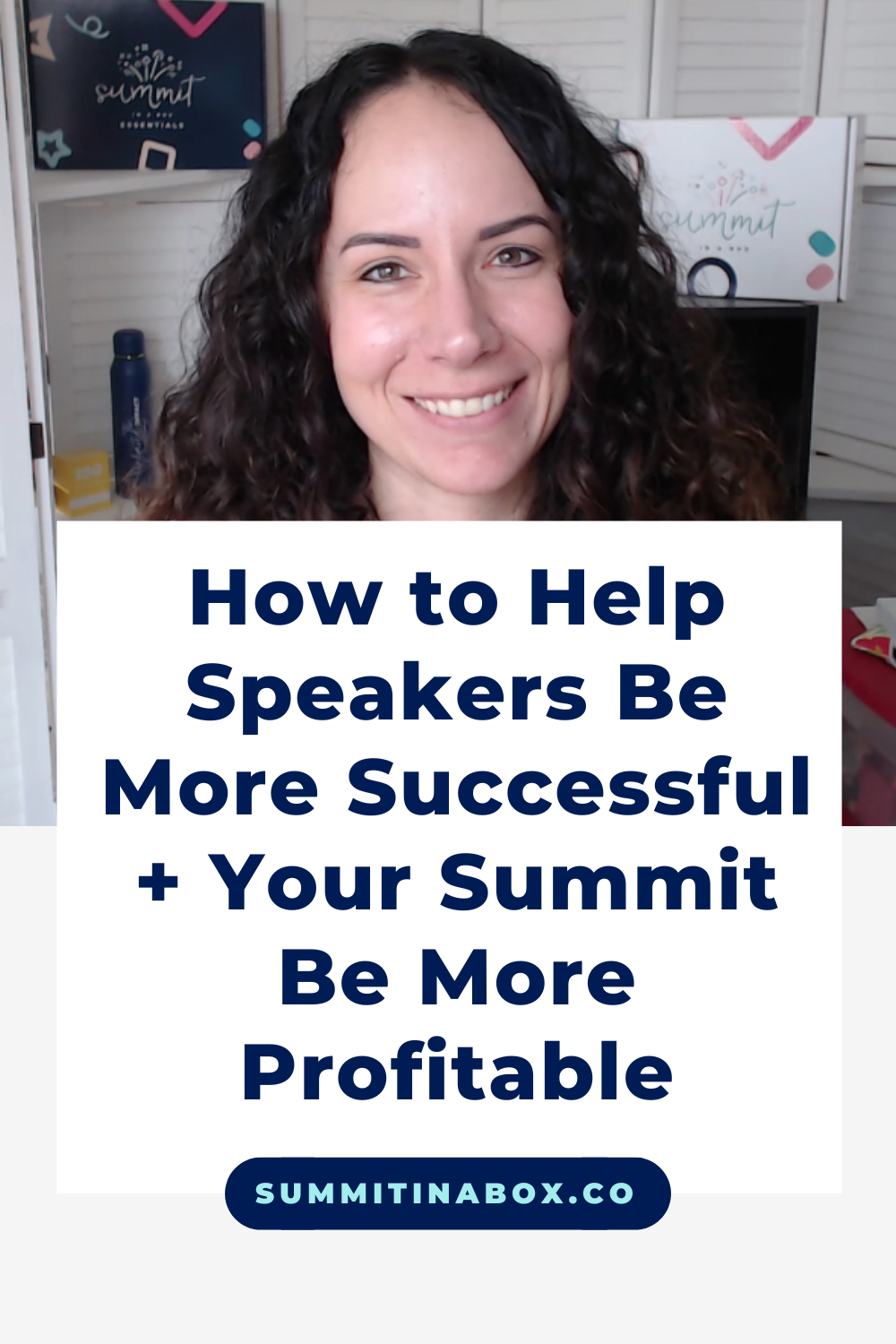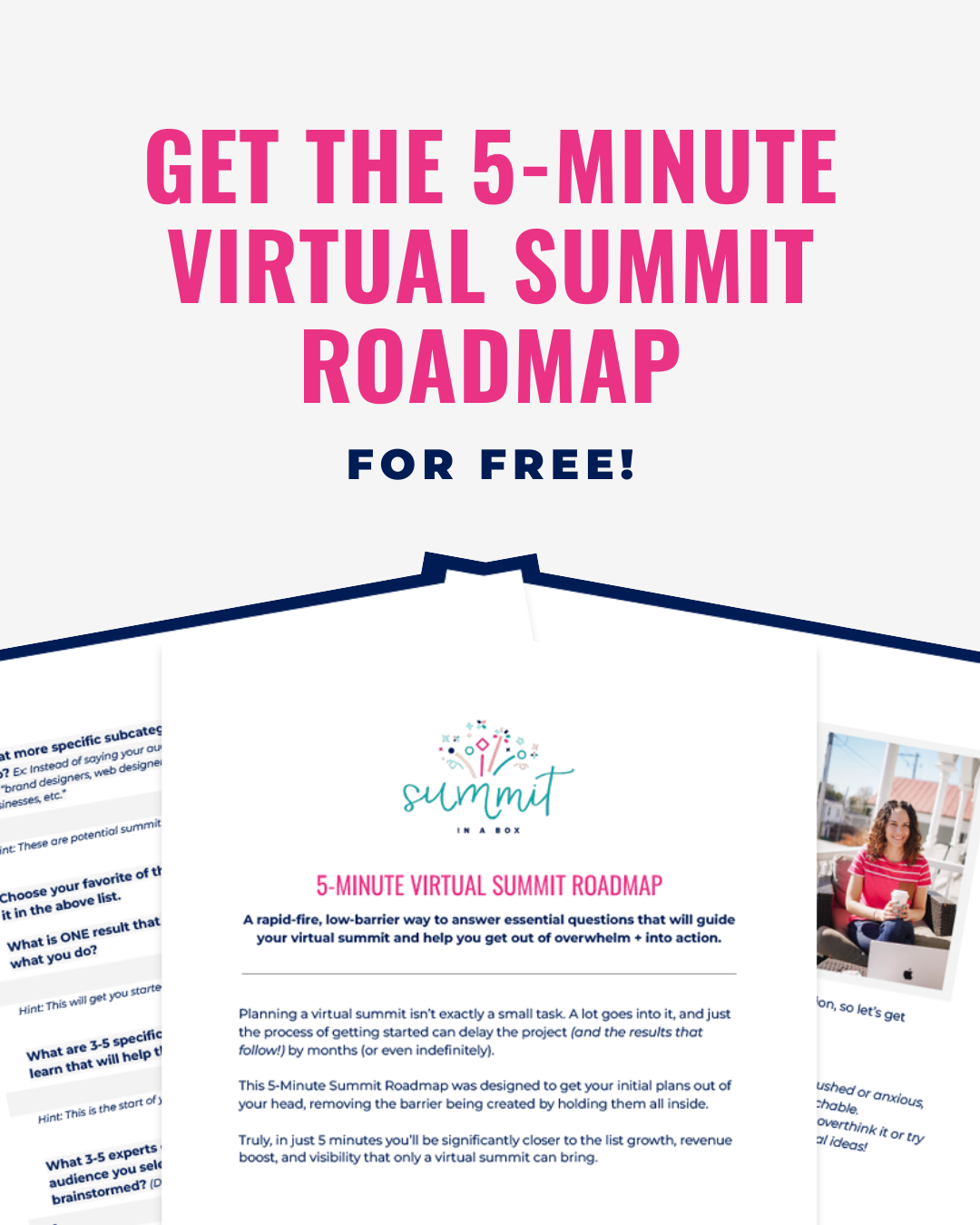How to Help Speakers Be More Successful + Your Summit Be More Profitable


Have you ever pitched an expert to speak at your summit, only to discover they have no idea what a lead magnet is? Or maybe you've had speakers with massive Instagram followings who somehow don't have an email list? If so, you're experiencing what I call the "Speaker Success Gap" – and it's more common than you might think.
In this episode, I dive into the frustrating disconnect between what we as summit hosts expect speakers to know, compared to the reality of what many experts actually understand about online marketing and summit participation. This gap isn't because speakers are being difficult or don't care – it's often due to fundamental differences in business models and experience. The good news is that it is possible to bridge the gap and create a win-win-win scenario for yourself, your speakers, and your attendees. I'll share how you can do that in this episode too!
Listen to the episode
The Four Areas of the Speaker Success Gap
Let's start by getting really clear on what this Speaker Success Gap actually looks like in the real world. I recently asked hosts in my community to share their experiences, and the stories came flooding in.
One host told me, 'I begged my speakers to start an email list so they could at least maximize the opportunity for themselves!' Another said, '90% of my speakers had issues understanding what the all-access pass bonuses and freebies were, even after several thorough explanations.'
I've seen situations where speakers with massive social followings have no idea how to capture a lead or set up a basic welcome sequence. I've heard of hosts spending way too much time trying to teach their speakers how to record a presentation.
The struggle is real, but there are 4 main ways or areas that we see this gap show up.
1. Technology and Marketing Gap
Many speakers, especially in B2C spaces or those newer to online business, simply don't have fundamental systems in place. They may not have email lists, lead magnets, sales funnels, or even understand what these things are or how they work together.
2. Value Perception Gap
When speakers don't understand how speaking at summits benefits them, they see your invitation as just asking them to work for free. They might ask for payment or approach the opportunity with hesitation, resentment, or just turn it down altogether.
3. Promotion Gap
Without understanding how promoting the event benefits them directly, many speakers will just do the bare minimum (if anything) to drive registrations. They don't see how everyone working together ultimately benefits everyone involved.
4. Engagement Gap
Speakers who don't see the bigger picture won't engage with attendees or other speakers because they think it's wasting their time. In reality, they're missing out on one of the most valuable aspects of the summit experience.
Why the Speaker Success Gap Exists
This gap doesn't usually exist because speakers are being difficult or don't care. It's because of fundamental differences in business models and experience. Many experts build their platforms and businesses in ways that don't rely on email marketing or digital products. Think about experts like:
- B2C creators who grew through social media and monetize through sponsorships or affiliate links
- Subject matter experts who primarily work with clients one-on-one
- Traditional professionals transitioning to online spaces
- Influencers who've never needed to think about conversion rates or sales funnels
These people can be incredible subject matter experts with enormous value to offer your audience. But they operate in business models where understanding the mechanics of summits just hasn't been necessary.
As summit hosts, we've been immersed in online marketing strategies and summit structures for so long that we forget how specialized this knowledge actually is. We assume everyone understands concepts like lead generation, list building, and sales funnels because they're foundational to our business models.
But for many experts – even successful ones with large audiences – these concepts might as well be a foreign language.
The Consequences of the Gap
When these gaps aren't addressed, everyone loses:
- Speakers miss out on leads, sales, visibility, and relationships
- Attendees receive presentations from speakers who aren't engaged in the experience
- You end up frustrated with poor promotion, confused speakers, and results that fall short
I've seen hosts react to this situation in three main ways:
The first approach is to just get frustrated. These hosts blame their speakers for being difficult or lazy, start implementing harsh promotion requirements, or decide that summits 'just don't work in my industry.'
The second approach is to give up and lower expectations. These hosts decide that speaker promotion isn't worth counting on, so they try to drive all registrations themselves through ads or other methods. This works to an extent, but it leaves so much potential on the table. Or they just give up on summits completely.
But there is a third way, which I haven't seen many hosts actually do, but if you can recognize the gap for what it is, and take strategic action, it is possible to bridge it.
Practical Solutions to Bridging the Gap
The most successful summit hosts I've worked with understand that when their speakers succeed, they succeed. And helping speakers navigate this gap isn't just kindness – it's smart business. By investing in bridging this gap, you're investing directly in your summit's outcomes.
Here are some practical steps you can implement for your next summit:
- Adjust your expectations based on your niche, understanding that not all speakers will come to your event with the same level of summit or marketing knowledge.
- Be transparent in your pitches by clearly communicating the benefits of participating from the speaker's perspective. Give examples of typical results they can expect.
- Provide resources and guidance that explain how speakers can leverage the summit opportunity, covering topics like making lead magnets, setting up email sequences, and promoting in ways that benefit them.
- Offer a support session – a live call with your speakers explaining how they can benefit from the summit, answering questions, and giving demos.
- Create a community where speakers can ask questions and help each other.
The Ultimate Summit Speaker Handbook
To make this process easier, I've created the Ultimate Summit Speaker Handbook – a comprehensive course designed to bridge this gap without requiring any of your time. It covers everything from creating high-impact presentations to maximizing lead generation, generating revenue, and promoting effectively.
This comprehensive resource includes everything your speakers need to fully leverage the opportunity you're providing, while increasing the success of your event. And the best part? You don't have to create a single training yourself.
The handbook covers everything from creating high-impact presentations to maximizing lead generation, from generating revenue through unpaid speaking to effective promotion strategies. It gives speakers a complete roadmap to summit success, whether they're marketing newbies or seasoned pros.
It's going to transform the way you work with your speakers – especially those who are new to the summit world.
Resources
- Episode 125: Your Speakers' Role in Promotion and Pressuring Them to Promote
- Episode 135: How to Make it EASY for Speakers to Promote Your Virtual Summit
- The Ultimate Summit Speaker Handbook
- Summit Host Hangout Facebook group
- Launch with a Summit Accelerator
- 6-Figure Summits Workshop Bundle
Pin it for later!




